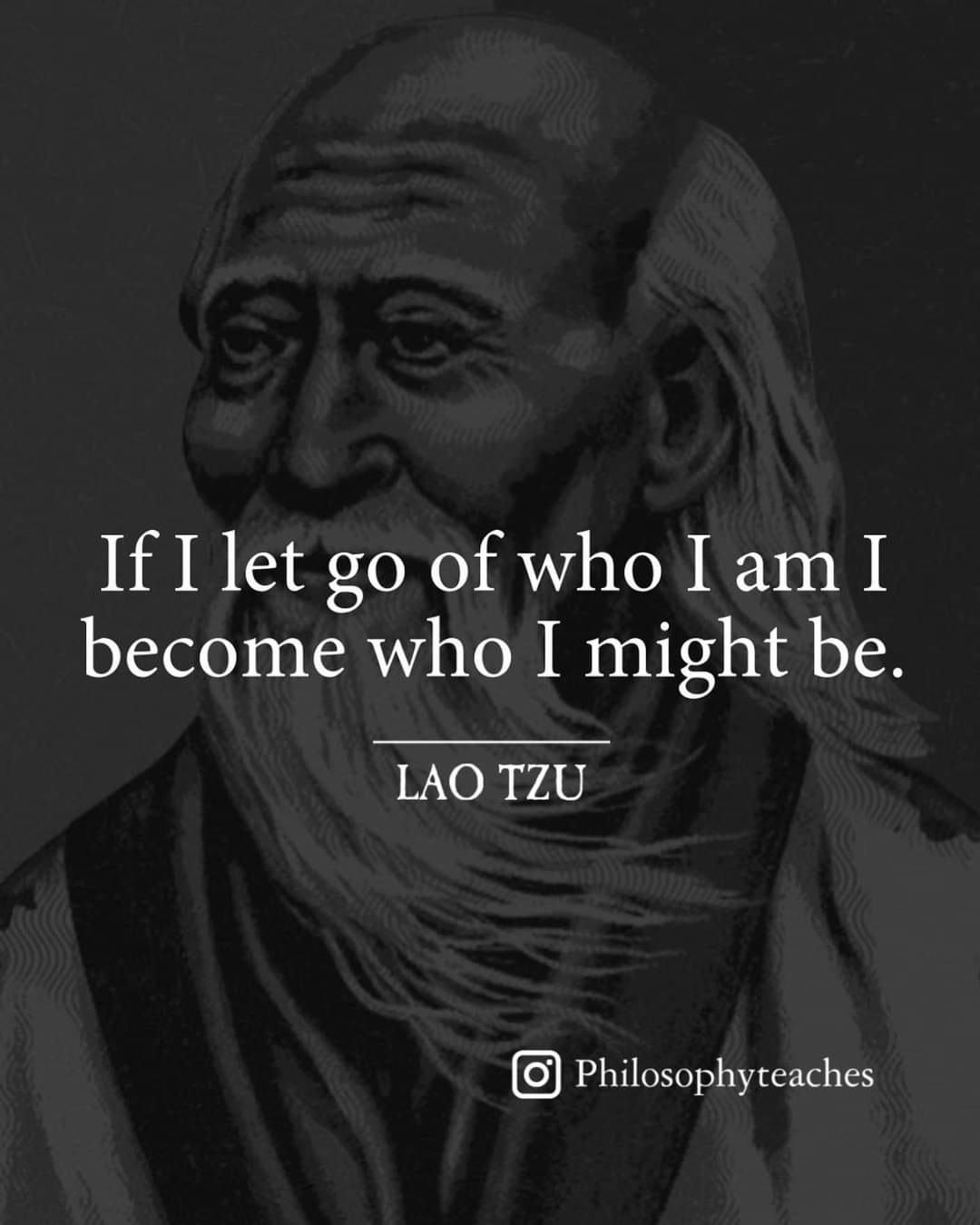The quote in the image, attributed to Lao Tzu, a mystic philosopher of ancient China, believed to be the author of the Tao Te Ching and the founder of philosophical Taoism, carries profound implications about the nature of personal identity and the journey of self-transformation.
The quote in the image, attributed to Lao Tzu, a mystic philosopher of ancient China, believed to be the author of the Tao Te Ching and the founder of philosophical Taoism, carries profound implications about the nature of personal identity and the journey of self-transformation.
"If I let go of who I am, I become who I might be."
At its core, this statement speaks to the concept of potentiality and the transformative power of surrendering fixed notions of self. It suggests that our attachment to a certain image of who we are can limit our growth. By releasing these attachments, we open ourselves to the vast array of possibilities that life offers, which can lead to personal evolution and the discovery of new facets of our identity.
Lao Tzu's philosophy emphasizes the importance of being in harmony with the Tao, which is the ultimate principle underlying the universe. This harmony involves embracing change, understanding the dynamic nature of existence, and recognizing the flow of life. The quote encapsulates the idea that personal enlightenment or fulfillment comes from the willingness to undergo change and to embrace the unknown.
Letting go of who we are does not mean losing ourselves or our values; rather, it means letting go of the rigid self-conceptions that hinder our ability to grow. It encourages a form of egolessness where the self is not a barrier to experience but a vessel for it.
In practical terms, this philosophy could be applied to personal development, suggesting that individuals should not fear change but should welcome it as an opportunity for self-improvement. It is also relevant in a broader social context, where it might be interpreted as a call for flexibility and adaptability in the face of life’s inevitable changes.
Lao Tzu's quote invites reflection on the nature of self-improvement, the journey of life, and the acceptance of change as an integral part of human existence. It challenges us to reconsider our self-imposed limits and to approach life with a sense of curiosity and openness to become who we might be.


